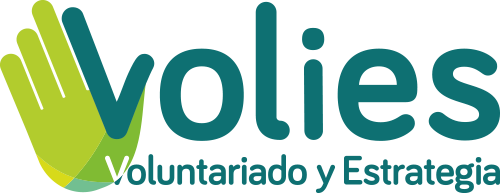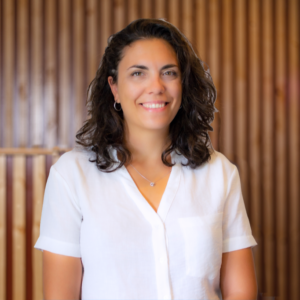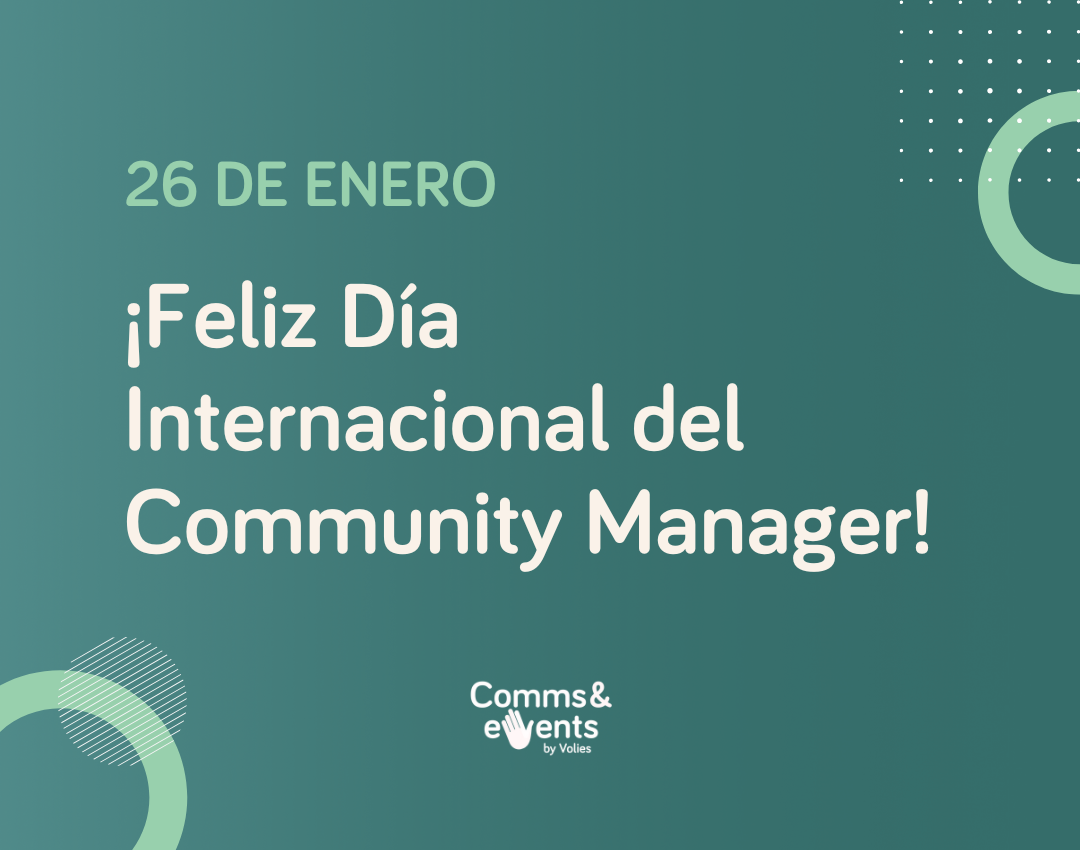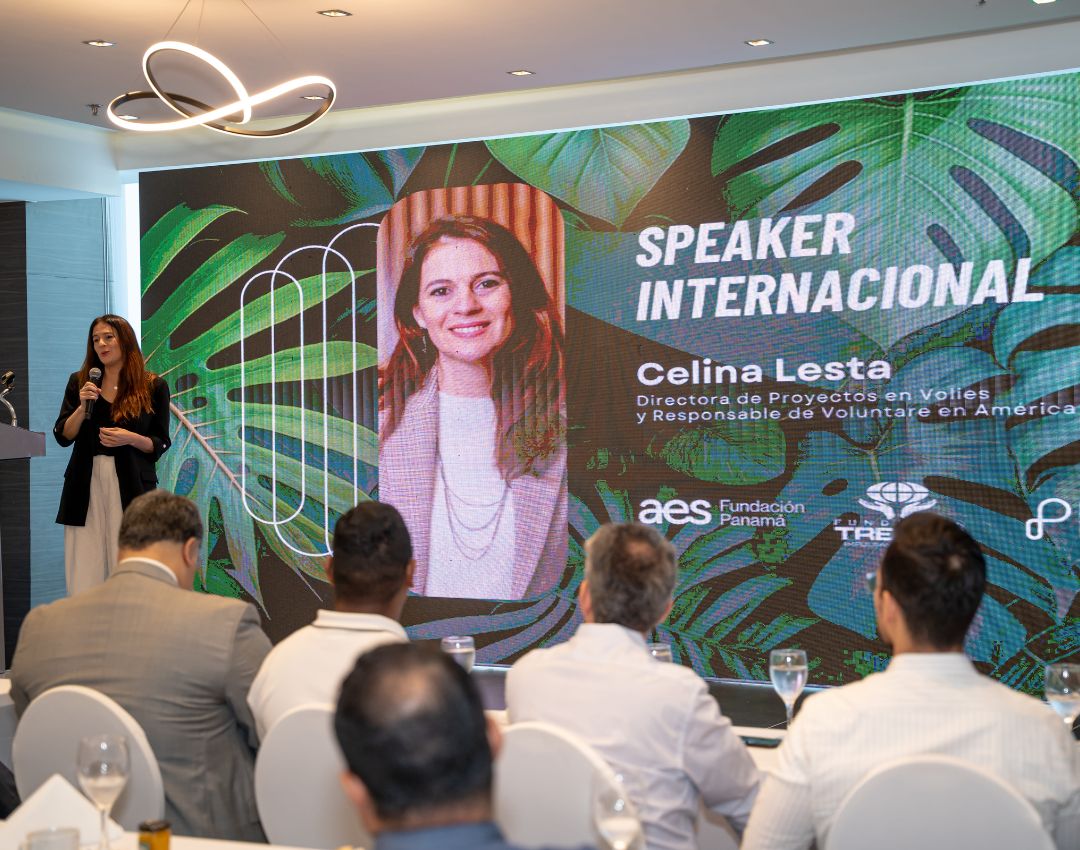With the aim of creating a space to raise awareness about the importance of facilitating the participation of people with disabilities in volunteer programs, from Volies we organized the conference: “Adding capabilities. Involving people with disabilities as volunteers”. A day in which we were able to reflect on the main challenges and opportunities to promote the participation of people with disabilities as volunteers.
Virginia Carcedo Illera, General Secretary and Director of Transformation, Excellence and Equality of ONCE Foundation, was in charge of opening the conference. In her speech, Virginia highlighted the reality of people with disabilities, who have almost always been passive subjects of volunteering, “because the situation of disability sometimes generates gaps that must be solved with the help of other people”. However, “more and more people with disabilities are becoming active subjects, because volunteering is not only a solidarity action, but also an inclusive right,” he concluded.
From Volies, as a B Corp company committed to high standards of social and environmental performance, public transparency and legal responsibility, we have long been promoting the concept of “inclusive volunteering”, an inclusive volunteering in which people with disabilities can participate.
“Precisely for this reason, the objective of this conference was to go a step further and begin to train both social organizations and companies, so that they can incorporate more and more people with disabilities as volunteers in their programs.”
Juan Ángel Poyatos, Volies

European Project VERA: Volunteering, Equality, Right, Action
This conference was part of the European Project VERA (Volunteering, Equality, Right, Action), del Centre for European Volunteering (CEV), of which Volies is a member.
Rocio Martins, Head of Projects and Diversity at Volies, shared with the attendees some of the key points of this project. From the development of surveys and focus groups, four main barriers faced by people with disabilities in volunteering have been identified:
- Access to communication
- The design of the activity itself
- Structural barriers of the organization promoting the action.
- Personal or interpersonal barriers.
“In order to achieve truly inclusive volunteering, it is essential to overcome these obstacles and generate initiatives that allow us to enhance the capabilities of all the people involved.”
Rocío Martins, Project Coordinator at Volies
That is why it is so important that volunteer management tools are accessible. In this sense, from Volies we carry out several projects aligned with this purpose as, for example:
- Accompanying the ONCE Foundation and ILUNION in the development of its volunteering platform, complying with the highest standards of accessibility.
- Or the review of current volunteer programs to ensure that they are truly inclusive, a service that we offer from our diversity area.
Good practices table

To complete the day we had the opportunity to listen to several concrete experiences of expert organizations in working with people with disabilities and their inclusion.
- Nieves Gudiña Herrero, volunteering technician at Fundación ONCE, emphasized that the benefit obtained when a person with a disability volunteers is both for the person who does it and for the person who receives the support. “The impact it has on someone who performs an activity is equal to or sometimes even greater than the help it produces for the beneficiary”.
- For her part, Nuria Mas, director of ESG Alliances and Impact Measurement at FUNDACIÓN JUAN XXIII emphasized two of the main reasons why inclusive volunteering is increasingly advancing in Spain: “because of the measurable social impact it has on employees, companies and society; and because it really changes the way people see people, breaks down barriers, eliminates stigmas and creates more pleasant work spaces”.
- Ignacio Velo Antolín, Director of Ethics, Sustainability and Alliances at ILUNION Group, highlighted the importance of normalizing disability and taking accessibility into account in the design of inclusive volunteering activities. “When scheduling the annual agenda, different and diverse activities should be programmed so that all interested people can contribute from their abilities”.
- Paula A. Martinelli, Technical Director of Fundación Síndrome de Down de Madrid, wanted to emphasize the main difficulties for the participation of people with disabilities as volunteers, and which have to do with the design prior to the activity and the subsequent follow-up. “It is very important to plan the volunteering, to make a previous analysis of the tasks to be carried out and it is very important to contemplate the training of all the people who are going to participate in the activity”, she emphasized.
- Finally, María José Arroyo, Head of Research, Training and Teaching at the Spinal Cord Injury Foundation reminded us that “a person can acquire a disability at any age”. This reflection has led them to develop a mentoring program in which professionals in psychology and social work participate with a volunteer tutor with spinal cord injury, who accompanies a person who has recently suffered a spinal cord injury.
“In addition, there are cases of people who were volunteers before acquiring a spinal cord injury, and the challenge here is how to get them to return to volunteering adapted to their new situation,” Arroyo concluded.

In addition to the organizations present at the best practices table, professionals from companies and organizations such as Amadeus, El Corte Inglés, MAPFRE, Volies, Asociación de Personas con Lesión Medular y otras discapacidades físicas -ASPAYM Madrid-, Cooperating Volunteers, Fundación A La Par and the Comunidad de Madrid participated in the debate. This generated an enriching debate from which lessons were learned that will surely lead to concrete and inclusive actions in the future.





